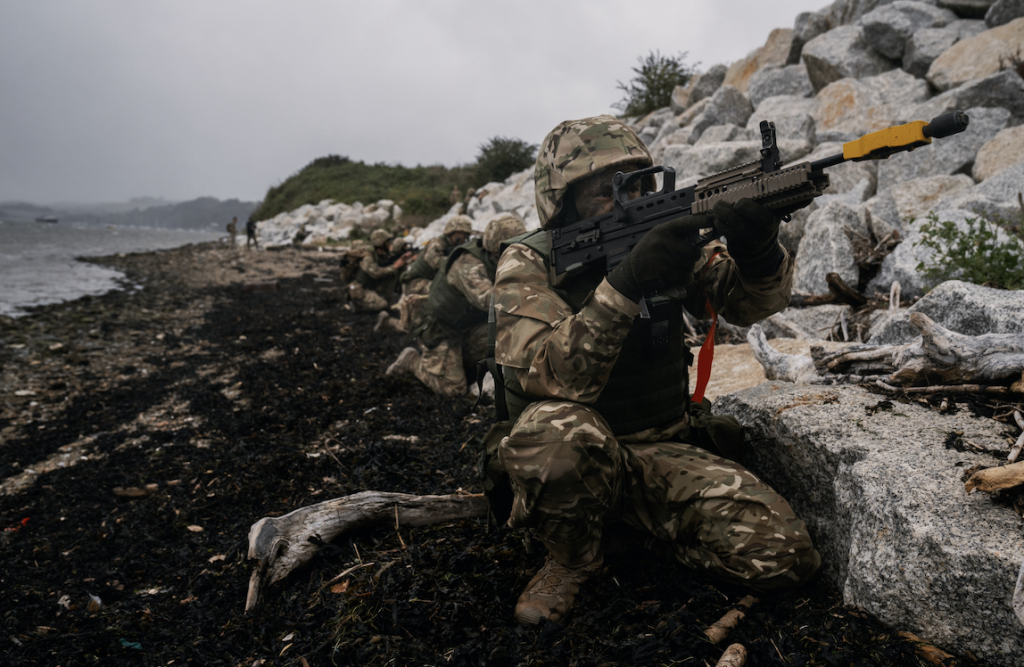The Ministry of Defence (MoD) announced on 11 August that the Royal Marines and British Army Commandos had trained nearly 1,000 Ukrainian troops in small boat amphibious operations including beach raids during a six-month programme supported by international partners.
With no official indication on how these skills will be employed, speculation exists on their possible application in an assault to liberate the Crimean peninsular, part of Ukrainian President Volodymyr Zelenskyy’s stated aims to repel Russian forces from all parts of Ukrainian territory.
Marine training
Each cohort of Ukrainian troops underwent a rigorous five-week training programme “developing individual skills including fieldcraft, battlefield first aid, close quarters combat, and fitness, and unit planning in realistic scenarios,” according to the MoD statement.
Many of the trainees were civilians with no prior military training, while others had experience of front-line combat and had been transferred to the Ukrainian marines from different parts of the military services.
The training was conducted by instructors from 42 Commando and 47 Commando Raiding group, in collaboration with Army Commandos from 24 Commando Engineers and Royal Artillery Gunners from 29 Commando. The training programme also included instructors from the Netherlands Marine Corps.
So far the course has completed by approximately 900 Ukrainian marines, trained in the use of Next Generation Light Anti-Tank Weapons (NLAW) and Stinger anti-aircraft missiles and mortars.
Training was also provided in the use of drones for reconnaissance and explosive demolition of obstacles such as Dragon's Teeth anti-vehicle fortifications.
UK commits to training a further 20,000 Ukrainian
“This programme of training, delivered by elite British commandos, will support Ukraine to build its own distinct marine force and expand its capability to operate in a maritime environment," said Defence Secretary Ben Wallace, adding that the “UK has led the way in training the Armed Force of Ukraine, providing world-leading training in front line combat skills to more than 20,000 of Ukraine’s Army recruits through Operation Interflex.”
In November 2022, Army Technology reported on the Operation Interflex training programme after an on-site visit to observe Ukrainian soldiers assaulting an enemy force under the guidance of military trainers and translators. In addition to the use of blank rounds and smoke to provide adequate preparation for the experience of frontline combat, an audio recording loudly simulated the screams and cries of the injured, while civilian amputees were hired to act as realistic battlefield casualties.
Since the beginning of 2022, more than 20,000 Ukrainian Armed Forces recruits have received training in the UK, learning essential front-line skills such as trench and urban warfare, leadership and medical training.
At the start of 2023, the UK committed to training 20,000 more Ukrainian recruits – roughly double the number trained last year – as part of one of the world's largest training programmes of its kind.
Aside from teaching recruits combat skills, the UK has provided a comprehensive package of other skills including medical training, pastoral care, spiritual support and moral guidance.












